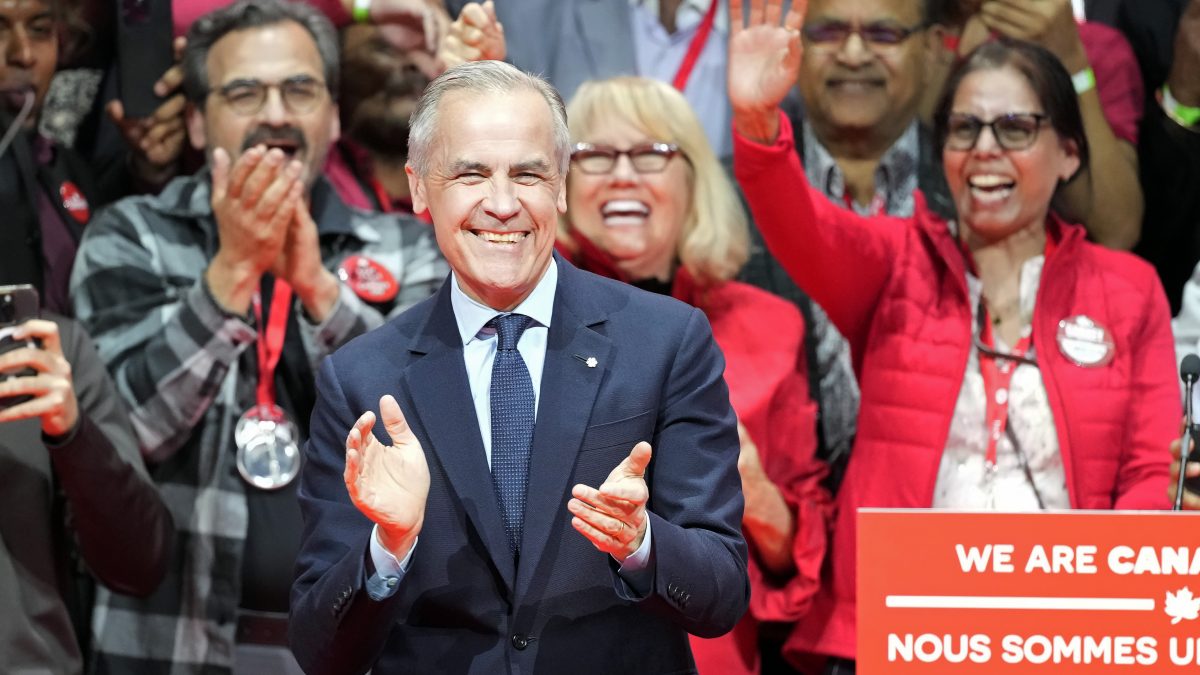The Liberal Party, led by Prime Minister Mark Carney, won Canada's federal election , following a dramatic turnabout spurred by the trade war and annexation threats of U.S. President Donald Trump.
The Liberals were predicted to win more of the 343 seats in Parliament than the Conservatives once the votes ended. However, it wasn’t immediately apparent if they would need to depend on one of the smaller parties to enact legislation or if they would gain an outright majority, at least 172.
The Liberals appeared to be heading for a catastrophic defeat until the American president began assaulting Canada’s economy and threatening its sovereignty, suggesting that it become the 51st state. Trump’s actions enraged Canadians and fuelled a spike in nationalism, allowing the Liberals to reverse the election narrative and win a fourth consecutive term in office.
In a victory address in Ottawa, Carney emphasised the necessity of Canadian unity in the face of Washington’s threats. He also announced the end of the mutually beneficial framework that had existed between Canada and the United States since World War II.
“We are over the shock of the American betrayal, but we should never forget the lessons,” he said.
“As I’ve been warning for months, America wants our land, our resources, our water, our country,” Carney said. “These are not idle threats. President Trump is trying to break us so America can own us. That will never … ever happen. But we also must recognize the reality that our world has fundamentally changed.”
Impact Shorts
More ShortsA defeat for the Conservatives
The Conservative Party’s leader, Pierre Poilievre, hoped to make the election a referendum on former Prime Minister Justin Trudeau, whose popularity declined toward the end of his decade in power as food and housing prices rose.
But Trump attacked, Trudeau resigned, and Carney, a two-time central banker, became the Liberal Party’s leader and prime minister.
In a concession speech and with his own House of Commons seat still in doubt, Poilievre vowed to keep fighting for Canadians.
“We are cognizant of the fact that we didn’t get over the finish line yet,” Poilievre told supporters in Ottawa. “We know that change is needed, but change is hard to come by. It takes time. It takes work. And that’s why we have to learn the lessons of tonight — so that we can have an even better result the next time Canadians decide the future of the country.”
Even with Canadians grappling with the fallout from a deadly weekend attack at a Vancouver street festival, Trump was trolling them on election day, suggesting again on social media that Canada should become the 51st state and saying he was on their ballot. He also erroneously claimed that the U.S. subsidizes Canada, writing, “It makes no sense unless Canada is a State!”
Trump’s truculence has infuriated Canadians, leading many to cancel U.S. vacations, refuse to buy American goods and possibly even vote early. A record 7.3 million Canadians cast ballots before election day.
As Poilievre and his wife cast their ballots in Ottawa, he implored voters to “Get out to vote — for a change.” After running a Trump-lite campaign for weeks, though, the Conservative leader’s similarities to the bombastic American might have cost him.
Reid Warren, a Toronto resident, said he voted Liberal because Poilievre “sounds like mini-Trump to me.” And he said Trump’s tariffs are a worry.
“Canadians coming together from, you know, all the shade being thrown from the States is great, but it’s definitely created some turmoil, that’s for sure,” he said.
Historian Robert Bothwell said Poilievre appealed to the “same sense of grievance” as Trump, but that it ultimately worked against him.
“The Liberals ought to pay him,” Bothwell said, referring to the U.S. president. “Trump talking is not good for the Conservatives.”
The Liberal way forward
Carney and the Liberals secured a new term, but they have daunting challenges ahead.
If they don’t win a majority in Parliament, the Liberals might need to rely on one of the smaller parties to remain in power and pass legislation. The Bloc Québécois, which looked set to finish third, is a separatist party from French-speaking Quebec that seeks independence from Canada. Trudeau’s Liberals relied on the New Democrats to remain in power for four years, but the progressive party fared poorly on Monday and its leader, Jagmeet Singh, said he was stepping down after eight years in charge.
After his New Democratic Party (NDP) suffered a resounding defeat in the general election, losing his own seat and possibly reducing the party to a single-digit seat count, Jagmeet Singh, a pro-Khalistani Sikh leader in Canada, resigned as its leader.
According to Canadian media, Singh admitted defeat in his British Columbia seat of Burnaby Central as the votes closed, and the party may lose its formal registration.
“This is a dramatic comeback, but if the Liberals cannot win a majority of seats, political uncertainty in a new minority Parliament could complicate things for them,” said McGill University political science professor Daniel Béland.
Until this year, foreign policy hadn’t dominated a Canadian election this much since 1988, when, ironically, free trade with the United States was the prevailing issue.
In addition to the trade war with the U.S. and frosty relationship with Trump, Canada is dealing with a cost-of-living crisis. And more than 75% of its exports go to the U.S., so Trump’s tariff threat and his desire to get North American automakers to move Canada’s production south could severely damage the Canadian economy.
While campaigning, Carney vowed that every dollar the government collects from counter-tariffs on U.S. goods will go toward Canadian workers who are adversely affected by the trade war. He also said he plans to keep dental care in place, offer a middle-class tax cut, return immigration to sustainable levels and increase funding to Canada’s public broadcaster, the Canadian Broadcasting Corporation.


)

)
)
)
)
)
)
)
)



